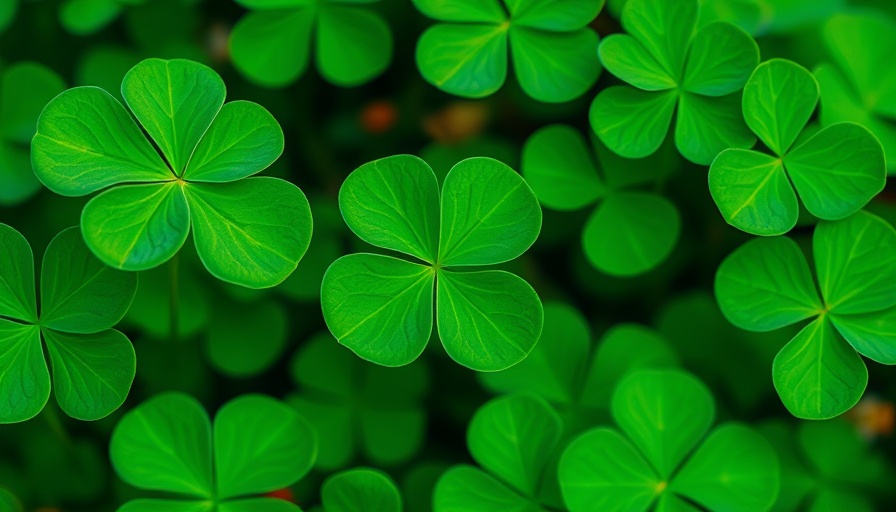
Why Consider a Clover Lawn?
As more homeowners shift their focus toward sustainable landscaping, clover lawns are emerging as a viable alternative to traditional grass. Clover is not only hardy and low-maintenance, but it also offers a plethora of environmental benefits. But, what exactly makes it such a compelling option?
The Advantages of Choosing Clover
Clover lawns require remarkably less water and upkeep than typical grass lawns. As mentioned in various studies, clover's deep root system helps it withstand drought conditions effectively. This eco-friendly solution not only saves homeowners money on water bills but also supports crucial pollinators such as bees and butterflies, contributing to the larger ecosystem.
Environmental and Economic Benefits
Lease maintenance means fewer resources expended—no more hours mowing or applying unnecessary fertilizers. Research indicates that clover improves soil health by fixing nitrogen, a process traditionally requiring synthetic fertilizers. Utilizing clover can substantially lower environmental impact while beautifying your yard.
Which Clover Varieties Should You Consider?
When it comes to clover types, there are several popular choices that homeowners can opt for, including:
- White Clover (Trifolium repens): This variety is most common in the U.S. and thrives in various soil conditions while establishing a vibrant green lawn.
- Red Clover (Trifolium pratense): Recognizable by its reddish-purple flowers, this clover is used primarily for nutrient replenishment in the soil.
- Microclover (Trifolium repens var. pirouette): Smaller in size, this type tolerates both drought and foot traffic, making it a perfect option for heavily-used lawns.
How to Transition to a Clover Lawn
Transforming your traditional lawn into a clover paradise is simpler than you might think. Seeds can be sown directly into existing grass or planted in bare patches. For best results, ensure appropriate climate conditions (USDA Hardiness Zones 3-10) and consult local regulations, as some areas may have restrictions on clover.
Anticipated Future Trends in Landscaping
As trends skew towards sustainability, more homeowners will likely choose alternative lawns like clover to combat climate challenges. This shift not only mitigates water usage but also aligns landscaping choices with ecological responsibilities.
With such clear advantages, now is the perfect time to contemplate shifting towards a clover lawn. Reducing maintenance, conserving water, and contributing positively to the environment are just a few motivations to make this eco-friendly choice.
In summary, clover lawns represent a forward-thinking landscaping choice for homeowners aiming to marry aesthetic appeal with functionality and sustainability. For those interested in exploring alternatives to grass, until you decide, consider the wealth of benefits summarized here.
 Add Row
Add Row  Add
Add 




Write A Comment